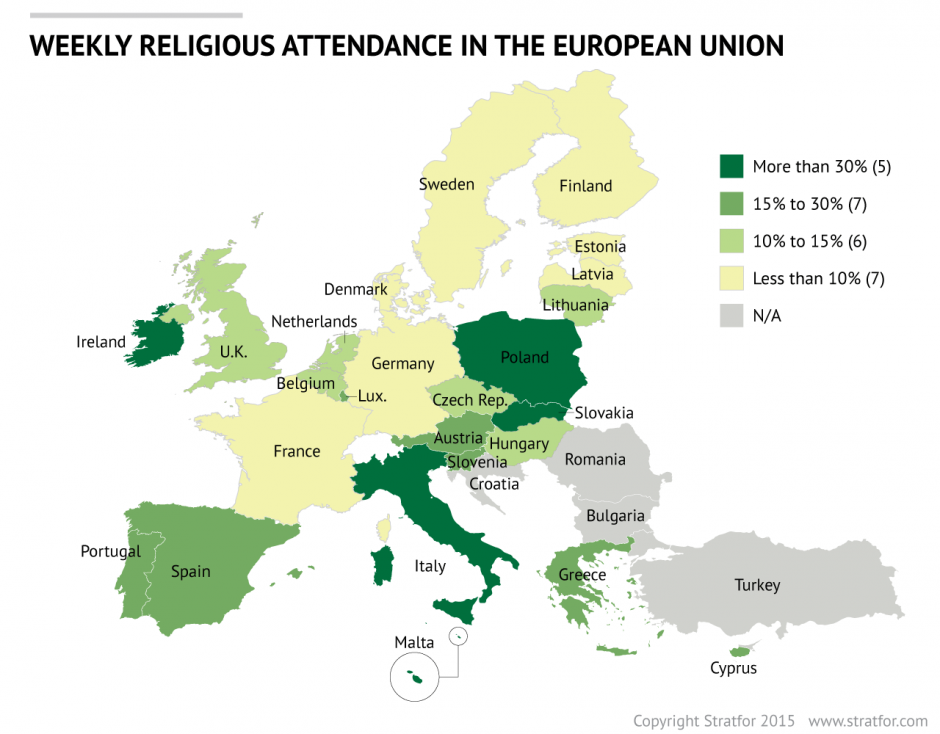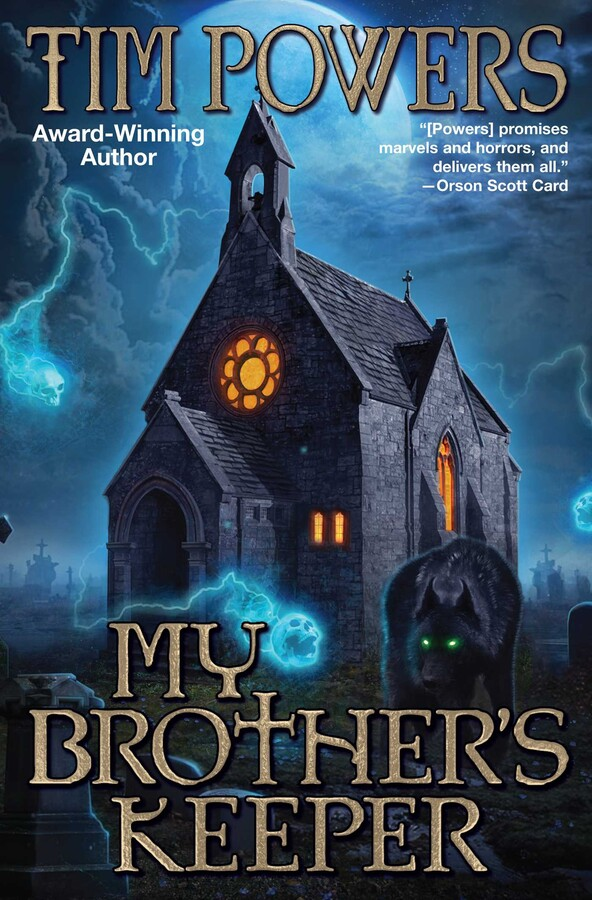The Long View 2007-11-26: From Lambeth Palace and Back Again, by Way of the Absolute Elsewhere

I think about this quote frequently. While I am sympathetic to projects that attempt to harmonize Church and State, in the twentieth century context, such experiments often turned out poorly for the Church. As John points out, the increasing power of the Papacy correlates well with the loss of the Papal States.
Might I suggest that it's no accident that the countries where the Church has become little more than a division of the museum industry are also the countries that are most generous with public funding for religious schools? It is perfectly true that the US Constitutional doctrine of the separation of Church and State was concocted in the middle of the 20th century in a thoroughly bigoted and high-handed way to deprive Catholic parochial schools of public money. It is also true that, in retrospect, this denial of government entanglement was the biggest favor anyone had done for the Church for centuries, with the possible exception of relieving the pope of the Papal States.
Never demand a sacrosanct liberty before you are sure it is not loaded.
From Lambeth Palace and Back Again, by Way of the Absolute Elsewhere
Looking for virtue online, are you? Well, here it is, Virtue Online, and it's the Voice for Global Orthodox Anglicanism. Global Orthodox Anglicanism appears to have its principal offices in Pennsylvania. Christianity itself started in a stable, but Pennsylvania still seems to be a long way from Lambeth Palace.
* * *
Are these people ineducable? Today's example comes from the Vatican, where John L. Allen reports that some of the social justice bureaucracy have yet to wake up and smell the incense:
The Vatican’s point man on education today described the lack of government support for Catholic schools in the United States as a “disaster,” and suggested that it reflects a lack of “full democracy” that would enable parents to choose the educational option they desire for their children...Grocholewski voiced much the same complaint about Italy, noting the irony that what he called more “liberal” European nations such as Belgium and Holland offer generous financial support to church-run schools, while traditionally ultra-Catholic Italy does not. Church leaders in Italy have fought for years to increase levels of government aid to private schools, to achieve what they call “full parity” with the funding of public schools...Monsignor Angelo Zani, the under-secretary of the Congregation for Education, likewise called upon governments to respect the “sacrosanct liberty of parents to choose the educational option for their children.”
Might I suggest that it's no accident that the countries where the Church has become little more than a division of the museum industry are also the countries that are most generous with public funding for religious schools? It is perfectly true that the US Constitutional doctrine of the separation of Church and State was concocted in the middle of the 20th century in a thoroughly bigoted and high-handed way to deprive Catholic parochial schools of public money. It is also true that, in retrospect, this denial of government entanglement was the biggest favor anyone had done for the Church for centuries, with the possible exception of relieving the pope of the Papal States.
Never demand a sacrosanct liberty before you are sure it is not loaded.
* * *
No sooner did I note last week that the Democrats would soon change their tune on the Iraq War than news stories to that effect began to appear, including this one in yesterday's New York Times. So far, the change is just from "disaster" to "Pyrrhic victory." Again, the full transformation to "opportunity" cannot occur until the Democratic presidential nomination has been decided, and the winner can turn to the general electorate and to less ideologically extreme sources of funding. However, even as we recognize that what the Democratic candidates say on the subject at this point has little to do with their actual views (except for Dennis Kucinich, of course), we may still note with disapprobation this chestnut from La Clinton:
“We need to stop refereeing their civil war and start getting out of it.”
We do? Aren't the attacks of September 11 generally thought to have been incidents in an Islamist civil war fought partly on Western soil? A little more refereeing during the Clinton-Gingrich-Delay years might have prevented a world of trouble.
* * *
I have the book, so maybe I will see the movie:
November 19, 2007
Hollywood producers are to film a movie about Jesus as a mystic travelling across India living in Buddhist monasteries and fighting injustice. They drew on revisionist scholars to flesh out the "missing years" of Jesus, between the ages of 13 and 30, which are untouched in the Bible. "The Aquarian Gospel," a $20 million movie, portrays Jesus as a holy man and teacher inspired by eastern religions in India. It takes its name from a century-old book that examined Christianity's eastern roots and is in its 53rd reprint, the Guardian reported Monday in a story carried on BuddhistChannel.tv...The film, due out in 2009, is to be a fantasy action adventure with the three wise men as Jesus' mentors. The producers say it will feature a "young and beautiful" princess, but it is not clear whether she is Jesus' love interest.
The Aquarian Gospel of Jesus the Christ (yes, here it is, I still do have it: copyright 1907; my reprint from 1981) is an Edwardian concoction that presents Jesus as He would have been, had He been a gentleman. In some ways, apocryphal literature of this sort, transcribed from the Akashic Record, is to be preferred to the late antique Gnostic gospels that come to light every few years. The Edwardians were much better writers than were the ancient heretics, and we can at least be sure that Elaine Pagels will not make a round of television appearances defending the Edwardians' revelations.
The one interesting point about the book is that the true, esoteric followers of Christ are called "Christines," in contrast to the clueless Christians.
* * *
Those parallel universes just get peskier and peskier. Now we learn that Parallel universe proof boosts time travel hopes:
[Theoretical physicist Richard Deutsch] argues that time travel shifts between different branches of reality, basing his claim on parallel universes, the so-called "many-worlds" formulation of quantum theory..."Many sci fi authors suggested time travel paradoxes would be solved by parallel universes but in my work, that conclusion is deduced from quantum theory itself", Dr Deutsch said, referring to his work on many worlds...Dr Deutsch added that the work addresses a three-century-old problem with the idea of probability itself, described by one philosopher, Prof David Papineau, as a scandal. "We didn't really know what probability means," said Dr Deutsch.
There's a convention that it's rational to treat it for most purposes as if we knew it was going to happen even though we actually know it need not. But this does not capture the reality, not least the 0.1 per cent chance something will not happen.
"So," said Dr Deutsch, "the problems of probability, which were until recently considered the principal objection to the otherwise extremely elegant theory of Everett (which removes every element of mysticism and double-talk that have crept into quantum theory over the decades) have now turned into its principal selling point."
Okay, but this kind of theory implies a "Where are they?" issue, like the one connected to the search for extraterrestrial life. Maybe actual Alternative History travelers would be too much to hope for, but surely there should be all sorts of anomalies in nature that could be explained only by this property of the universe. If there are no such anomalies, then the theory may have a problem.
* * *
An old joke goes: "The food in that restaurant was terrible; and such small portions!" That seems to a close analogy to the Archbishop of Canterbury's view of American imperialism:
THE Archbishop of Canterbury [Rowan Williams] has said that the United States wields its power in a way that is worse than Britain during its imperial heyday. ...In a wide-ranging interview with a British Muslim magazine, the Anglican leader linked criticism of the United States to one of his most pessimistic declarations about the state of western civilisation.
He said the crisis was caused not just by America’s actions but also by its misguided sense of its own mission. He poured scorn on the “chosen nation myth of America, meaning that what happens in America is very much at the heart of God’s purpose for humanity”...Williams suggested American leadership had broken down: “We have only one global hegemonic power. It is not accumulating territory: it is trying to accumulate influence and control. That’s not working.”
He contrasted it unfavourably with how the British Empire governed India. “It is one thing to take over a territory and then pour energy and resources into administering it and normalising it. Rightly or wrongly, that’s what the British Empire did — in India, for example."
That would be a telling point if the US were trying to found a 19th-century empire, but no such enterprise has been contemplated by the US since the Spanish-American War. His Grace the Archbishop is like Niall Ferguson in confusing an empire with the empire. The US is not trying to found that, either, but the Iraq War is on the trajectory to it.
Copyright © 2007 by John J. Reilly
Support the Long View re-posting project by downloading Brave browser, and then trying it out. With Both Hands is a verified Brave publisher, you can leave me a tip too!



Comments ()